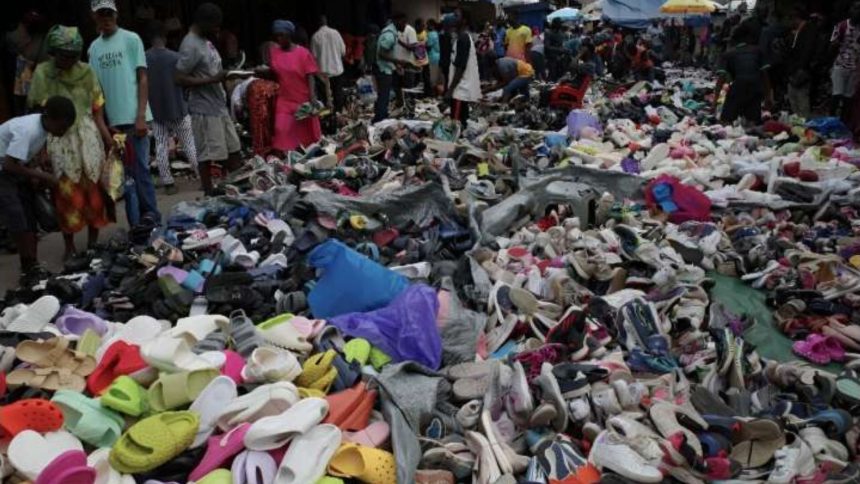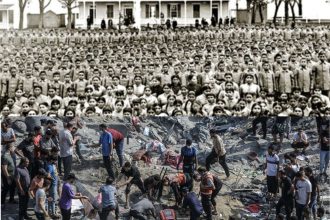Ghana, like many other developing nations, has become a major destination for secondhand clothes, primarily from wealthier nations in the West. The trade in second hand clothing market, often referred to as “obroni wawu” in the local Twi language, meaning “dead white man’s clothes,” has long been a lifeline for lower-income families, providing affordable options in a country where new clothes can be prohibitively expensive. However, this once beneficial trade is now posing severe environmental, economic, and social challenges to the country. The influx of secondhand garments is overwhelming markets, filling landfills, and damaging the local textile industry. This article delves into Ghana’s growing problem with secondhand clothing imports and the broader implications it has for the country and beyond.
- The Origin of the Second hand Clothing Trade in Ghana
- The Scale of the Problem: A Tsunami of Textiles
- Environmental Impact: Fast Fashion Meets Slow Decay
- Economic Impact: A Dying Local Textile Industry
- Health and Safety Concerns
- Efforts to Manage the Crisis
- The Role of Western Nations and Fast Fashion
- Global Awareness and the Call for Sustainable Fashion
- Future Outlook: Can Ghana Overcome the Tsunami of Clothes?
The Origin of the Second hand Clothing Trade in Ghana
The secondhand clothing trade dates back to the 1960s and 1970s when surplus clothing from Western countries began arriving in Africa. The industry quickly grew, fueled by globalization and the rise of fast fashion in developed nations. Countries like the United States, United Kingdom, and other European nations started exporting their excess clothing to developing countries, where it was seen as a cheap, accessible alternative to buying new.
The secondhand clothing market in Ghana has now ballooned to the point where it plays a significant role in the local economy. The capital, Accra, is home to one of the largest secondhand clothing markets in West Africa – the Kantamanto Market. Here, tons of clothes arrive every week, offering everything from vintage items to modern fast-fashion discards. However, what was once a boon is now becoming a bane.
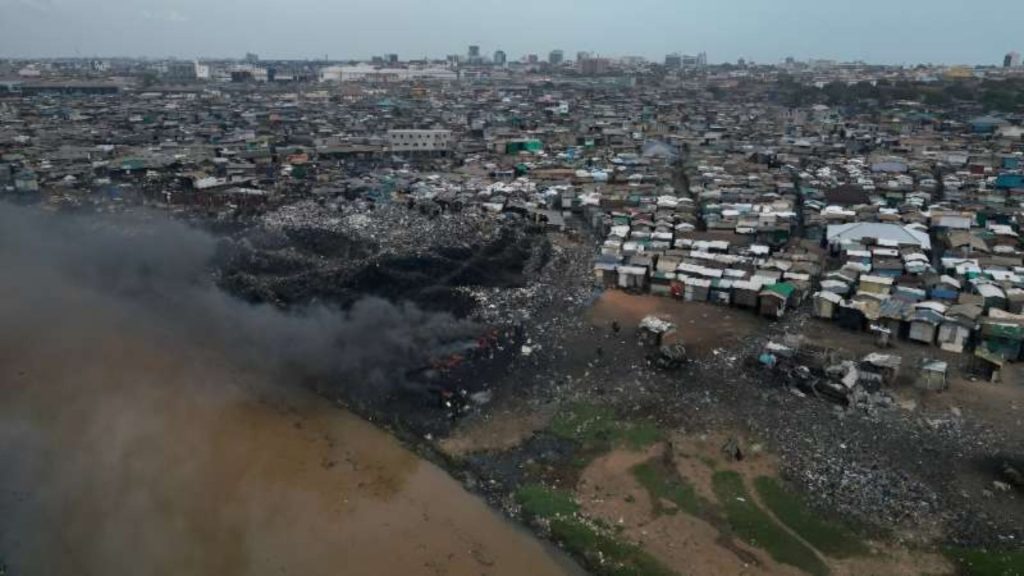
The Scale of the Problem: A Tsunami of Textiles
Ghana’s secondhand clothing problem has reached a critical stage. The country imports around 15 million used garments every week, primarily through Kantamanto Market, one of the busiest places for secondhand clothing in the world. While many of these clothes are resold, a significant portion is unsellable due to poor quality, damage, or obsolescence.
According to the Accra Metropolitan Assembly, up to 40% of imported secondhand clothes are waste. These discarded textiles often end up in landfills, open dumps, or are incinerated. Ghana’s waste management systems are ill-equipped to handle this influx, and the result is environmental devastation. The clothes pile up in rivers, streams, and oceans, contributing to the country’s growing problem of textile pollution. The beaches of Accra, once pristine, are now littered with unwanted clothing, creating what environmentalists refer to as “clothing mountains.”
Environmental Impact: Fast Fashion Meets Slow Decay
The environmental impact of secondhand clothing is severe. Textile waste has become one of the largest contributors to Ghana’s waste crisis, and much of this waste is non-biodegradable, often made from synthetic fibers like polyester. These materials take hundreds of years to break down and release harmful microplastics into the environment, contaminating water bodies and affecting marine life.
Additionally, the unsold clothes are often burned, releasing toxic fumes and greenhouse gases into the atmosphere. According to the Environmental Protection Agency (EPA) of Ghana, textile waste contributes significantly to air pollution in urban areas. The burning of synthetic fabrics releases volatile organic compounds (VOCs), including dioxins and furans, which are harmful to both human health and the environment.
In addition to air and land pollution, the runoff from textile waste can contaminate soil and water sources, leading to broader environmental degradation. In coastal areas, such as the popular tourist destination Labadi Beach, the impact is especially visible, where heaps of discarded clothes often wash ashore after heavy rains.
Economic Impact: A Dying Local Textile Industry
The surge in secondhand clothing imports has also had a detrimental effect on Ghana’s local textile and garment industry. Once a thriving sector, Ghana’s textile industry has struggled to compete with the low prices of secondhand clothes. Factories have closed, and thousands of jobs have been lost, as consumers increasingly opt for cheaper imported garments over locally produced ones.
In the 1970s, Ghana boasted a robust textile industry with companies like Ghana Textile Printing (GTP) and Akosombo Textiles Limited (ATL) leading the way in African fashion. Today, these companies are a shadow of their former selves. The Ghanaian government has attempted to revive the industry by imposing tariffs and restrictions on imported secondhand clothing, but these measures have had limited success.
The Textile, Garment, and Leather Workers’ Union (TEGLWU) of Ghana has repeatedly called on the government to take stronger action, including stricter enforcement of tariffs and better support for local manufacturers. However, the lure of cheap clothing remains strong, and many consumers prefer the variety and affordability offered by secondhand imports.
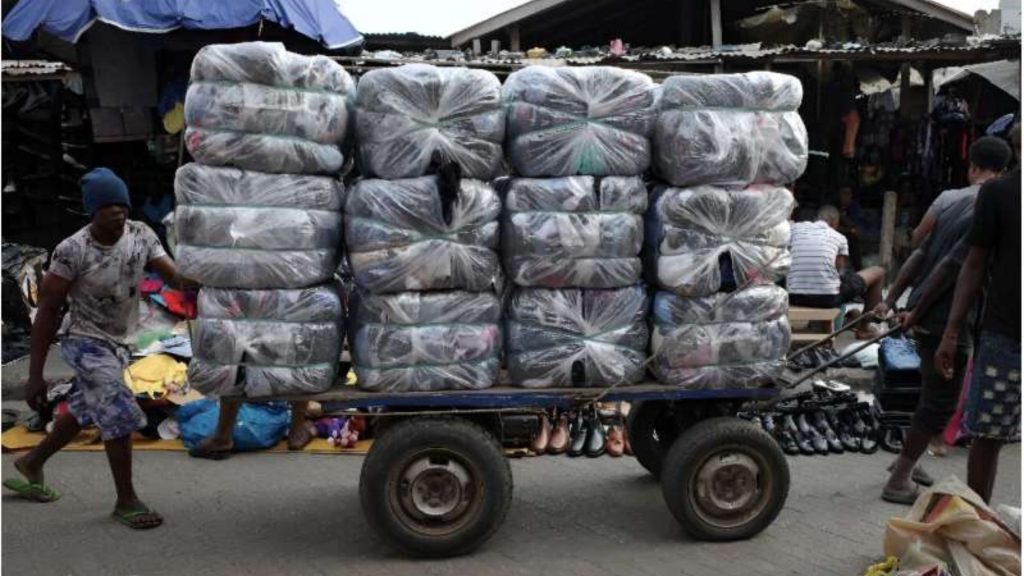
Health and Safety Concerns
Another often-overlooked issue with the influx of secondhand clothes is the health risk it poses to both consumers and sellers. Since many of these garments are not properly sanitized before arriving in Ghana, they can harbor harmful bacteria, fungi, and even chemical contaminants. Dermatologists in Ghana have raised concerns about the rise of skin infections and allergies, which they attribute in part to the wearing of secondhand clothes.
Additionally, the unsanitary conditions in markets like Kantamanto, where clothes are piled in open areas and exposed to dust, rain, and pests, exacerbate the problem. The workers who sort and sell these clothes are particularly vulnerable to respiratory illnesses due to prolonged exposure to dust and mold.
Efforts to Manage the Crisis
Recognizing the growing problem, various stakeholders in Ghana, including the government, environmental groups, and civil society organizations, have started taking steps to address the crisis. However, the scale of the issue remains overwhelming, and progress has been slow.
One of the most notable efforts has been the Ghana Recycling Initiative by Private Enterprises (GRIPE), which seeks to promote recycling and sustainable waste management practices in the country. Though originally focused on plastic waste, GRIPE has now started addressing textile waste as well, encouraging the reuse and recycling of secondhand clothes.
The Accra Metropolitan Assembly has also introduced pilot projects aimed at improving waste collection and management in markets like Kantamanto. However, the lack of funding and infrastructure has hindered the effectiveness of these programs.
Environmental groups such as The Or Foundation, which works closely with the Kantamanto Market community, have been particularly vocal in their advocacy for sustainable fashion. They promote education and awareness about the environmental impact of fast fashion and are pushing for systemic change, both within Ghana and in the countries that export secondhand clothes.
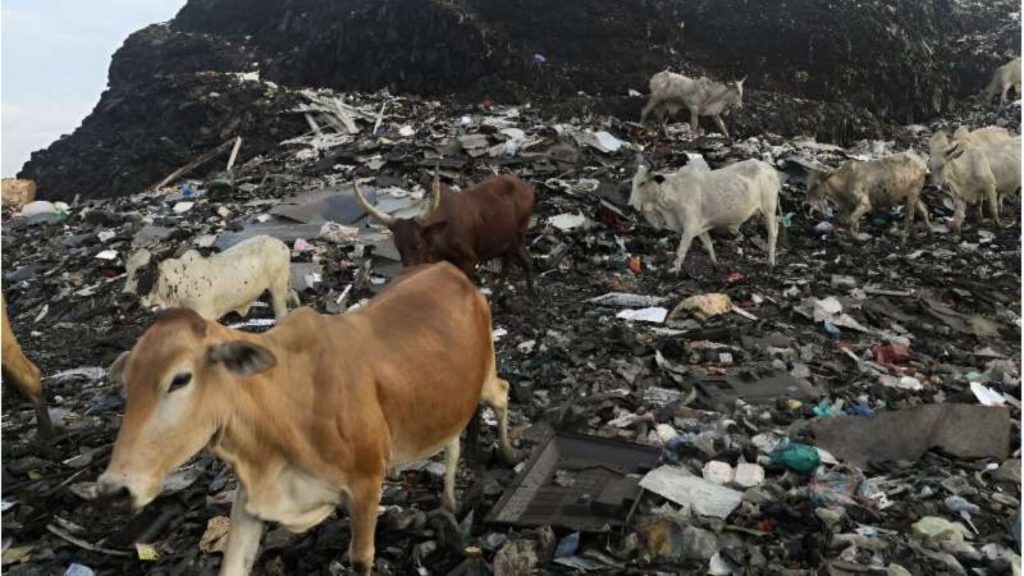
The Role of Western Nations and Fast Fashion
Western nations play a significant role in Ghana’s secondhand clothing crisis. The rise of fast fashion in the global North has led to an increase in clothing production, consumption, and disposal. Consumers in wealthy countries buy more clothes than ever before, often discarding items after just a few wears. These discarded clothes are then sent to developing nations like Ghana, where they add to the mounting waste crisis.
Many environmentalists and industry experts are calling for a reevaluation of this system. They argue that Western nations should take more responsibility for their waste by reducing clothing production, promoting sustainable fashion practices, and investing in proper recycling systems.
Several European countries, such as France, have introduced extended producer responsibility (EPR) laws that require fashion brands to take responsibility for the disposal of their products. If more nations were to adopt similar policies, it could help alleviate the burden on countries like Ghana.
Global Awareness and the Call for Sustainable Fashion
The growing awareness of the environmental and social impacts of secondhand clothing imports is pushing both consumers and policymakers to reconsider the fashion industry’s current trajectory. Sustainable fashion is increasingly being seen as a viable solution to the problem. Initiatives such as The Fashion Pact, a global coalition of fashion companies committed to reducing their environmental impact, are helping to shift industry practices.
In Ghana, young designers and entrepreneurs are also embracing sustainability by creating fashion from recycled materials and promoting traditional textiles. Organizations like The Or Foundation and Ghanaian fashion designers are spearheading initiatives to repurpose and upcycle secondhand clothes, giving them new life and reducing the amount of waste sent to landfills.
The government, for its part, is starting to recognize the need for stronger policies to protect the environment and revitalize the local textile industry. However, the challenge remains monumental, and it will require concerted efforts from both local and international stakeholders to stem the tide of secondhand clothes.
Future Outlook: Can Ghana Overcome the Tsunami of Clothes?
Ghana’s struggle with secondhand clothing is a multifaceted issue that touches on global trade, environmental degradation, and social inequities. While the country has made strides in addressing the problem, much more needs to be done. The sheer volume of imported clothes is overwhelming local systems, and without significant intervention, the crisis will only deepen.
Moving forward, greater international cooperation will be essential. Western nations must take responsibility for the waste they produce and reduce their reliance on the developing world as a dumping ground for unwanted clothes. In Ghana, stronger enforcement of import regulations, investment in local manufacturing, and the promotion of sustainable fashion will be key to curbing the flow of secondhand garments.
The future of Ghana’s textile industry and environmental health depends on a paradigm shift away from fast fashion and towards a more sustainable, circular economy. Only by working together can Ghana and the global community hope to overcome the tsunami of secondhand clothes.








